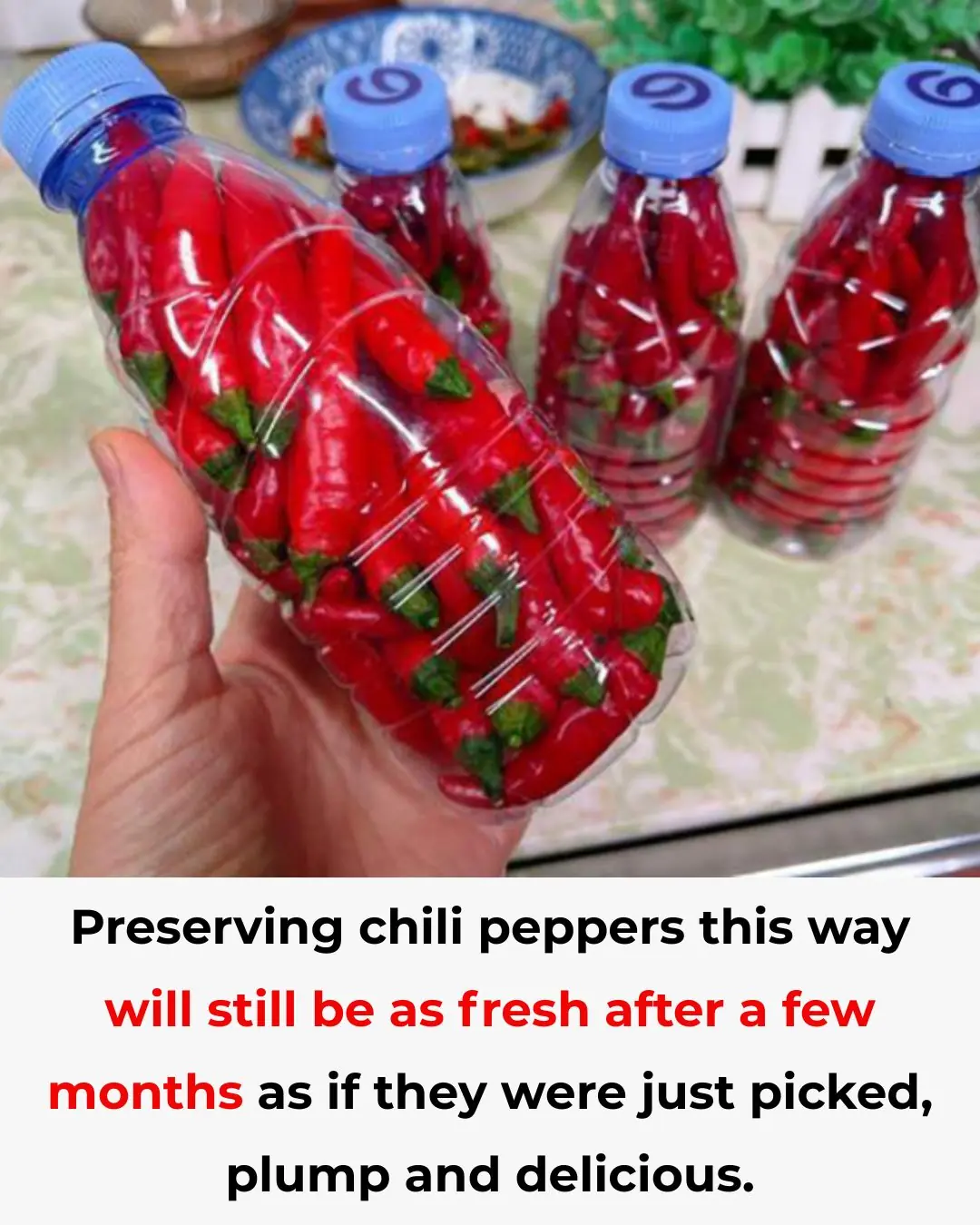
Crush this 'astringent' leaf and mix it with pig's intestines, the pure white intestines will lose all their foul smell.

The Secret to Perfectly Clean and Odor-Free Pork Intestines
Did you know that just by using a handful of crushed banana leaves, you can make pork intestines spotless and completely free of unpleasant odors?
Pork intestines are a popular delicacy loved by many, especially when cooked into dishes like boiled intestines, grilled skewers, or mixed salads. However, cleaning intestines properly is one of the most challenging steps in the preparation process — particularly when dealing with large intestines, which tend to have a strong, lingering smell. So, how can you clean them quickly and effectively?
1. Clean with Crushed Banana Leaves
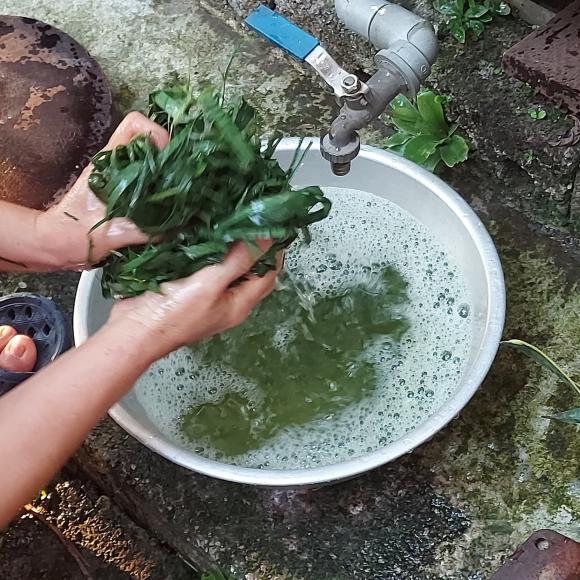
The dwarf banana plant (often called “chuối tiêu” in Vietnam) is common in many rural areas. Compared to other banana types, its leaves produce a thicker, more astringent juice, which works wonders for cleaning.
To use, crush the banana leaves thoroughly to extract the liquid, then pour it into the intestines and knead several times. The natural tannins in the leaves will remove grease and odors effectively, leaving the intestines clean and fresh.
If you live in the city and can’t easily find fresh banana leaves, ask for “chuối tiêu” leaves at the market — they’re darker and thicker than plantain leaves, and much more effective. Alternatively, you can rub the peels of green bananas to extract their juices and use that liquid in the same way.
2. Clean with Fish Sauce
Fish sauce isn’t just for seasoning — it’s also a surprisingly powerful cleaning agent. Pour a generous amount of fish sauce into the intestines, then use gloves and rub thoroughly several times. The enzymes and salt in fish sauce help neutralize the smell and remove impurities. After that, rinse well with clean water, and you’ll have spotless, odor-free intestines.
3. Other Effective Cleaning Methods
Besides banana leaves and fish sauce, you can also clean pork intestines using rice washing water, flour, baking soda, or even vinegar.
-
Rice washing water helps remove mucus and softens the texture naturally.
-
Flour is another great option — it absorbs grease and reduces the strong odor while keeping the intestines smooth and less fatty. Simply add flour and a little rice washing water, rub thoroughly, then rinse clean.
-
Baking soda is well-known for its deodorizing ability, while vinegar or white wine can also cut through the smell effectively.
4. Be Careful When Using Alum (Phèn chua)
Some professional cooks use alum to clean and make the intestines firmer because it’s fast and inexpensive. However, alum contains aluminum compounds, and if not rinsed properly, it may leave residues that are harmful to your health. For that reason, it’s not recommended for home use.
5. Clean with Rice Wine or Alkaline Water
Rice wine (or cooking wine) can also be used to eliminate odors and kill bacteria naturally. Pour some into the intestines, rub for a few minutes, and rinse — the result is not only clean but also mildly fragrant.
If you have access to alkaline water, it’s another great option thanks to its high pH level, which helps neutralize unpleasant smells and break down grease. However, since not every household has alkaline water, the most practical methods remain banana leaves, fish sauce, vinegar, or rice water.
Another clever tip: if your household makes a lot of pickled vegetables, use a bit of the sour brine to clean the intestines. The mild acidity of the fermented liquid can also help remove odors efficiently.
Final Tip
No matter which method you choose, always rinse the intestines thoroughly under running water several times until they are clean, white, and odor-free. With just a few natural ingredients you probably already have in your kitchen, you can make sure your pork intestines are perfectly clean, safe, and delicious every time you cook them.
News in the same category


You’re doing it all wrong. Here’s the right way to store eggs

The reasons why public toilet doors don't touch the ground.
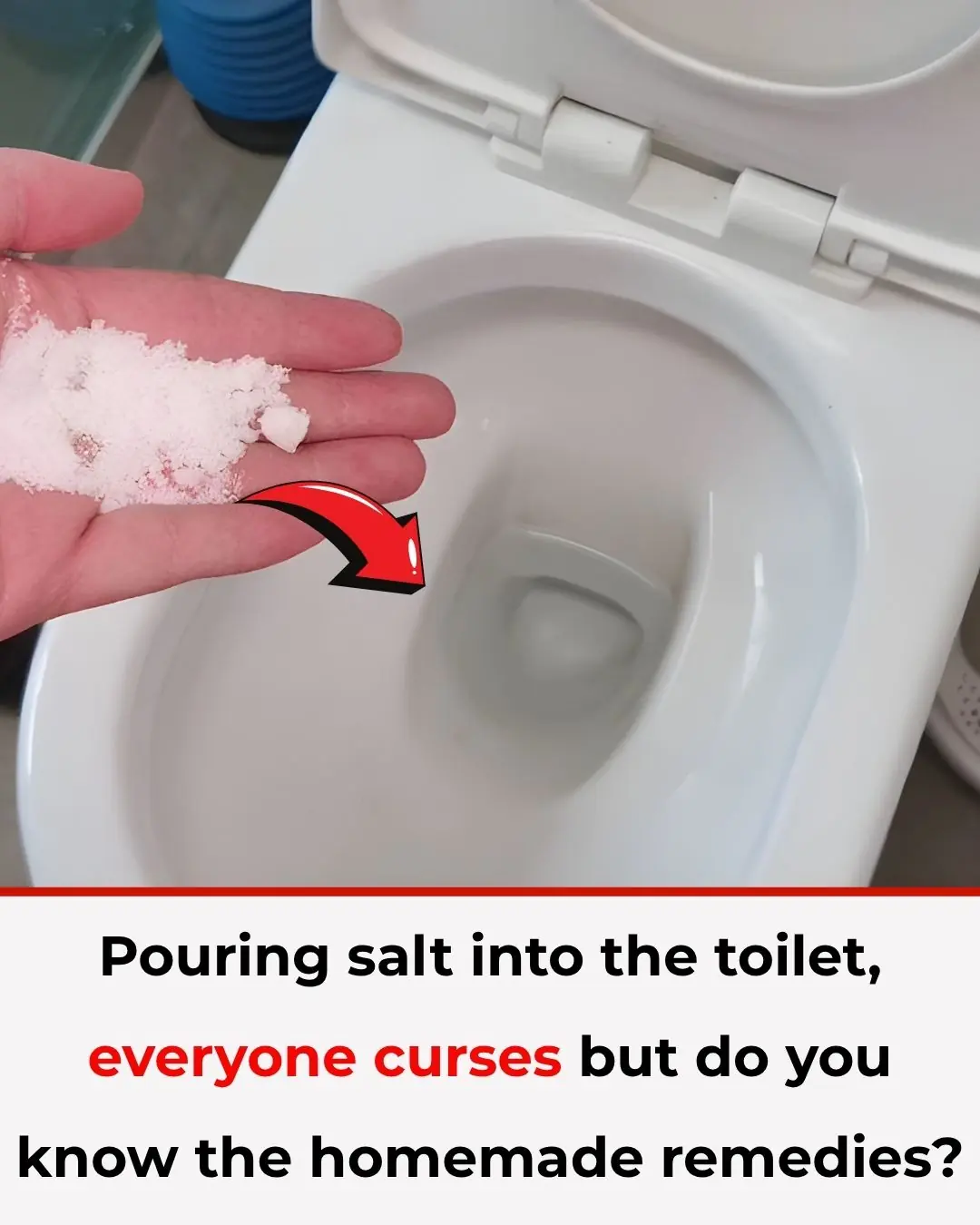
Pouring Salt into the Toilet: Everyone Thinks It’s Crazy, but Once You Know Its Benefits, You’ll Try It at Home Immediately

Black Mold on Refrigerator Seals? Use This Trick to Clean It in Just 5 Minutes

Don’t Ignore This: Check Your Fridge Now and Remove These 7 Items Before It’s Too Late

Why is that and the answer for those who don't know?

Why Do Flat Electrical Plugs Have Two Round Holes? The Hidden Function Is Brilliant

What Your Pile of Dirty Dishes Might Really Be Saying About You

You're doing it all wrong. Here’s the right way to store butter

Why There’s a Dent in Your Milk Jug—and What It Actually Does

The more you clean a leaky house, the dirtier it gets: Do this to dry it, with immediate effect

During humid spring rains, put this in the bathroom to help deodorize, avoid moisture, and save cleaning time.
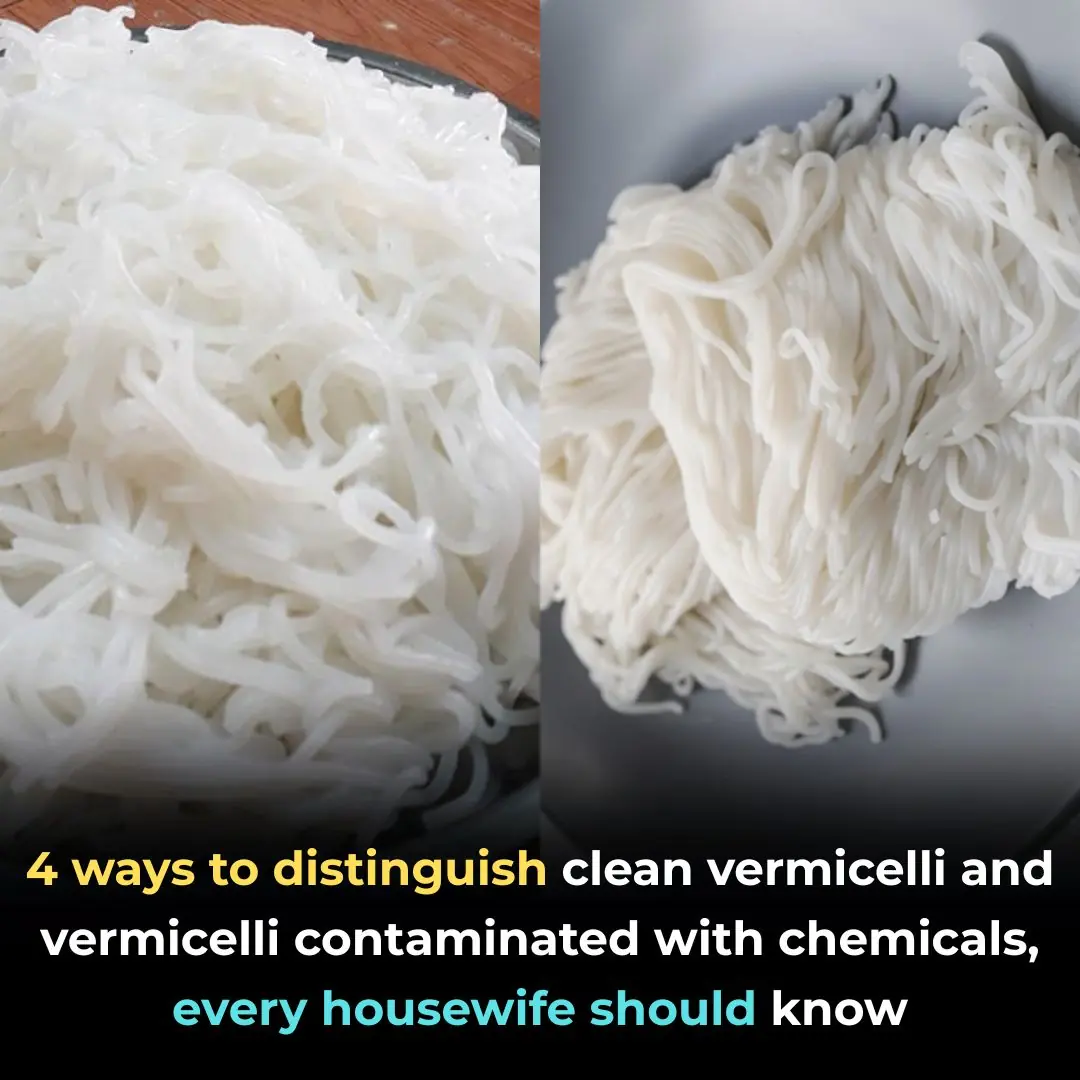
4 ways to distinguish clean vermicelli and vermicelli contaminated with chemicals, every housewife should know
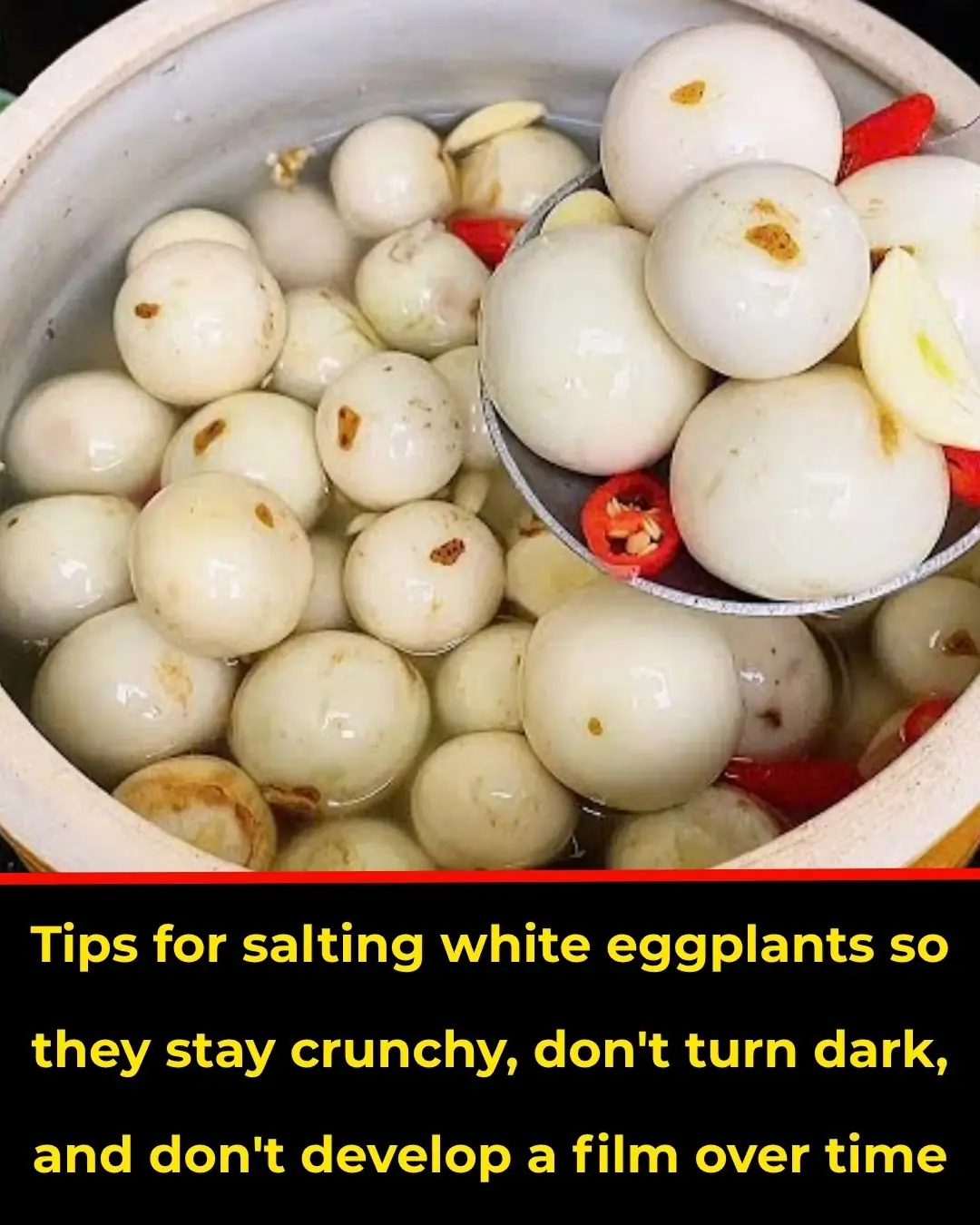
Tips for salting white eggplants so they stay crunchy, don't turn black, and don't develop mold over time

Putting citrus peels in white vinegar helps solve many household problems without wasting effort.

The whole world values this type of fruit even more than cordyceps; Vietnam has plenty of it, but no one knows to eat it.

You are doing it all wrong. Here's the right way to clean your windows

My nana taught me this hack to whiten dingy grout in 4 mins with 0 work. Here’s how it works

You’re doing it all wrong. Here’s the right way to dust your home
News Post
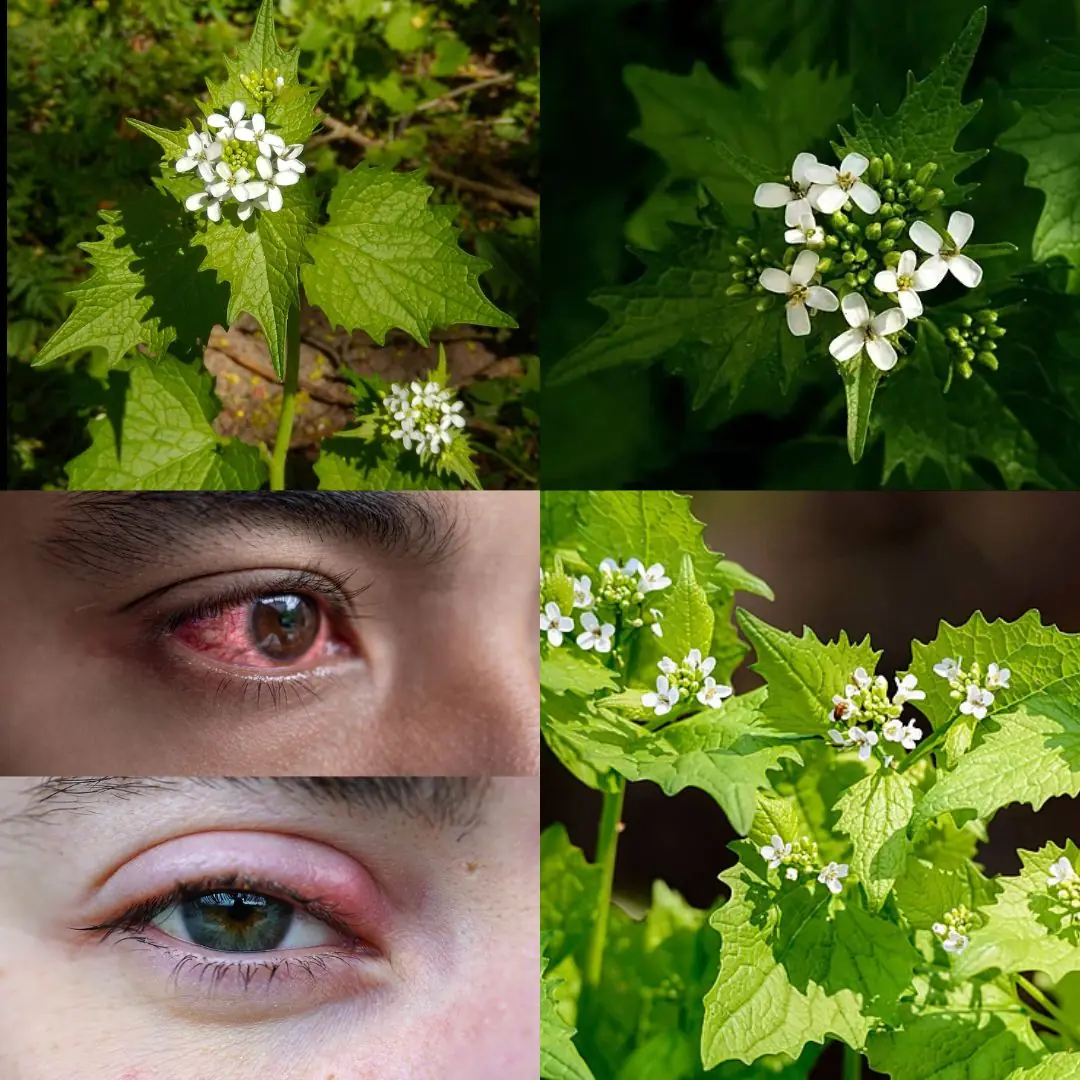
Garlic Mustard: The Overlooked Herb That Can Boost Your Health — Especially Your Eyes

SHOCKING NEW STUDY REVEALS WHAT MIGHT BE SILENTLY DESTROYING HUMAN FERTILITY

POPULAR SHAMPOO URGENTLY RECALLED BECAUSE IT CONTAINS BACTERIA THAT KILLS UP TO ONE IN TEN PATIENTS

How to Store Chili Peppers So They Stay Fresh, Juicy, and Flavorful for Months

Nurse who's witnessed 'so many deaths' explains spine-chilling moment she realised 'what happens after we die'

You’re doing it all wrong. Here’s the right way to store eggs

The influenza flu virus is being used to cure pancreatic cancer

The reasons why public toilet doors don't touch the ground.

Eye Doctor Reveals What To Do If You Start Seeing ‘Floaters’

The Baby Hippo Who Just Wanted to Be Left Alone.

The Chimpanzee and the Lion Cub: A Love Beyond Species.
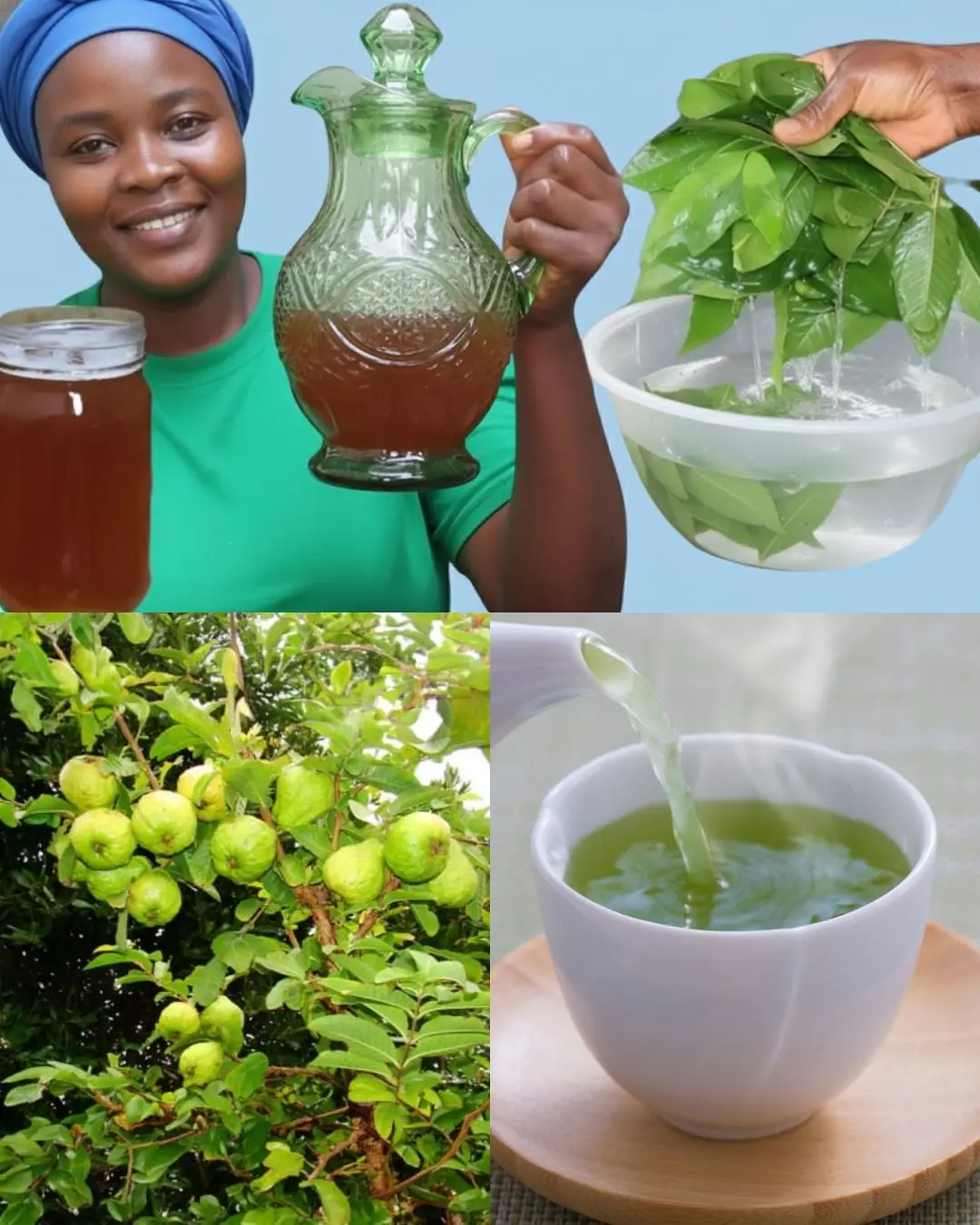
🍃 17 Reasons to Drink Guava Leaf Tea Twice a Week

If cancer cells are present in the body, these 3 symptoms often appear in the morning everyone should pay attention

The Night the Bear Knocked at the Door.

🥤 The Rejuvenating Smoothie That Makes You Look 20 Years Younger 🌿

A Love That Shaped a Legend: Robert Redford and Lola Van Wagenen.

Firefighter’s Final Rescue Saves Ten Souls

Rex: The Police Dog Who Gave His Life to Protect His Best Friend

3 foods you thought were bad for diabetes (but aren’t!)
